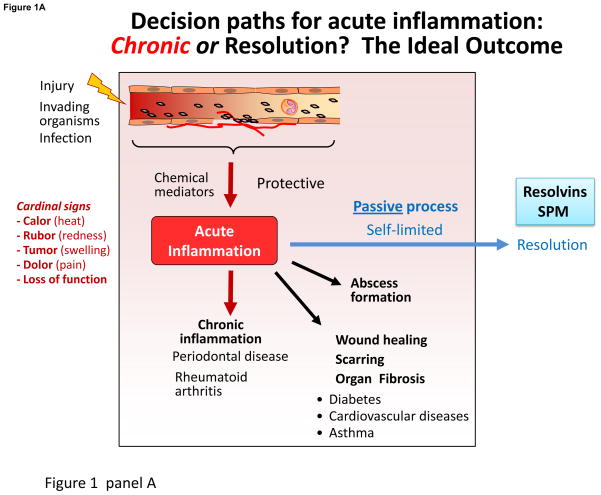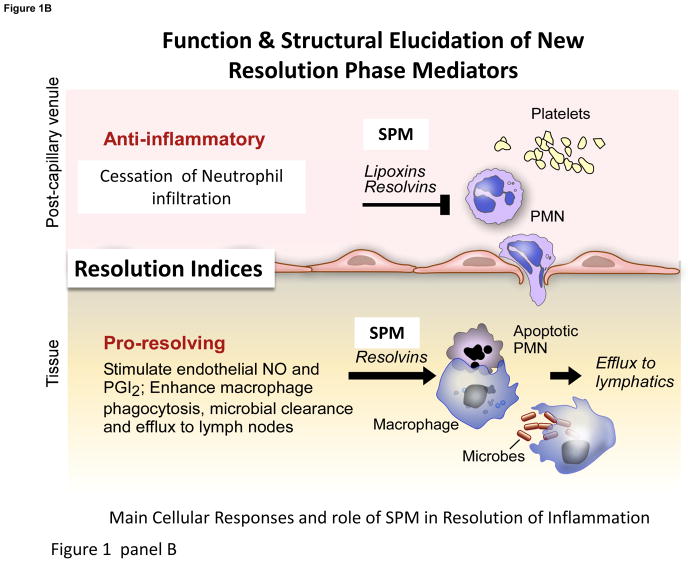Figure 1. Lipid mediators in the acute inflammatory response and its outcomes.
Panel A: LM play pivotal roles in the vascular response and leukocyte trafficking, from initiation to resolution. Eicosanoids are critical in initiating the cardinal signs of inflammation, and the specialized proresolving mediators (SPM), illustrated above, play key roles stimulating resolution (Panel B). Depicted are some roles of resolvins, protectins and maresins, SPM, in leukocyte trafficking, lipid mediator class switching, efferocytosis, resolving exudates to homeostasis and signaling to adaptive immunity via lymphocytes. Failed resolution can lead to enhanced prostaglandin and leukotriene production and chronic inflammation that can lead to fibrosis. SPM (lipoxins, resolvins, protectins and maresins) counterregulate pro-inflammatory chemical mediators, reducing inflammation, and stimulate reepithelialization, wound healing, and tissue regeneration (see text for details).


